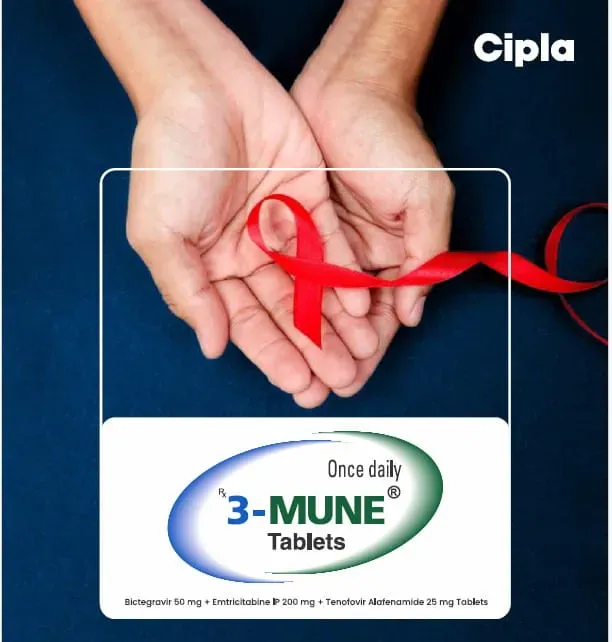AIDS 2024: Phase 1 Study of VH4524184 (VH-184), A New Third-Generation Integrase Strand Transfer Inhibitor (INSTI) With A Unique Resistance Profile
Speaker: Luise Rogg
VH4524184 (VH-184), a novel third-generation integrase strand transfer inhibitor (INSTI), is undergoing clinical evaluation. INSTIs has served as a cornerstone in Human immunodeficiency virus (HIV) therapy for over 15 years, with existing second-generation INSTIs demonstrating both efficacy and favorable tolerability profiles. However, there is a critical need for new therapeutic options that are long-acting and possess a high barrier to resistance to better address the needs and preferences of individuals living with HIV. VH-184 is in the development phase, with ongoing Phase I clinical trials and in vitro analyses assessing its activity against INSTI-resistant HIV strains derived from clinical isolates.
Phase I study assessing VH-184, a third-generation INSTI, was conducted with adult participants who were HIV-negative. The study comprised three components: administration of single doses of VH-184, a 14-day dosing regimen, and an evaluation of the effect of food on pharmacokinetic (PK) parameters. The study enrolled 84 participants, of whom 63 received VH-184. A total of 44 adverse events were reported, all mild, with no serious adverse events observed. VH-184 has minimal impact on the PKs of Cytochrome P450 3A (CYP3A) substrates, indicating a favorable drug-drug interaction profile. Additionally, the effect of food on the oral bioavailability of VH-184 was assessed; PK parameters were found to increase by 1.5 to 1.8-fold under fed conditions compared to fasting, reflecting a moderate positive food effect similar to that of dolutegravir (DTG). These preliminary results suggest that VH-184 provides robust pharmacokinetic exposure and a good safety profile, supporting its continued clinical trial development.
The evaluation of VH-184 was conducted in two studies, Sailing and Dawning, which included populations with documented failure on current therapies at baseline. The antiviral activity of VH-184 was tested against clinically derived viral isolates from seven participants who had developed relevant INSTI resistance mutations. The results revealed that VH-184 retains near-wild-type antiviral activity against isolates selected for resistance to DTG, including those with multiple INSTI resistance mutations. In clonal isolates with various INSTI mutations, VH-184's antiviral efficacy remained stable. In a separate analysis involving isolates from seven participants in the Dawning study, many samples exhibited the glycine 118 arginine (G118R) mutation, leading to elevated Inhibitory Concentration 50 (IC50) values compared to those from the Sailing study. Nonetheless, VH-184 demonstrated potent antiviral activity against these DTG-selected INSTI-resistant isolates. Despite mutations associated with higher resistance levels, VH-184 maintains substantial in vitro activity. Combining these in vitro findings with PK data from the Phase I study supports the potential for VH-184 to achieve effective exposure levels against numerous INSTI-resistant strains.
In conclusion, the ongoing evaluation of VH-184 has demonstrated encouraging results regarding safety, tolerability, and drug-drug interaction profiles, suggesting a favorable outlook for its future clinical development. Currently, VH-184 is being tested in Phase 1 trials with injectable formulations in HIV-negative participants and Phase 2a trials involving HIV-naïve individuals. Notably, VH-184 exhibits a distinctive in vitro resistance profile, maintaining efficacy against viral strains resistant to second-generation INSTIs.
The resistance profile of VH-184 has been thoroughly investigated in vitro. The study encompasses in vitro passage studies and evaluations involving site-directed mutants. VH-184, categorized as a third-generation INSTI, is distinguished by its novel resistance profile. Unlike earlier-generation INSTIs, VH-184 is engineered to address a broad spectrum of mutations that have emerged with second-generation INSTIs. Its efficacy is characterized not only by its interaction with specific mutations, such as 263 or N118 but also by its comprehensive effectiveness against a range of resistance-associated mutations. Future research will evaluate VH-184 in patients with limited treatment options, such as those in the Viking study.
The 25th International AIDS conference (AIDS 2024). 22nd-26th July, Munich, Germany



